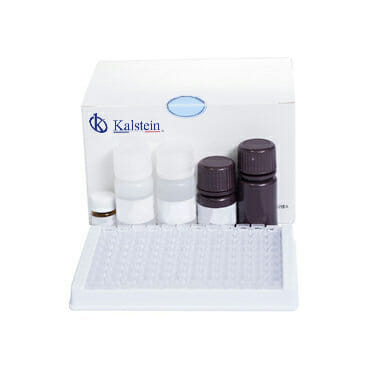Product Description
The YRA series of clinical chemistry reagents by Kalstein offers a comprehensive collection of state-of-the-art solutions designed to meet the highest standards in laboratory environments. Each reagent in the series—from YRA1 to YRA14—embodies precision and innovation to provide accurate and reliable results. These reagents utilize a variety of methods tailored to specific biochemical parameters, making them essential tools for medical diagnostics and clinical research.
For instance, the YRA1 and YRA2 reagents utilize the IFCC Recommendation Method for efficient ALT and AST testing, essential for liver function assessment. The YRA3 reagent, employing the SZASZ Method, provides accurate measurements of Gamma-Glutamyl Transferase (GGT), while YRA4 uses the Bromocresol Green Method for determining albumin levels.
Moreover, the YRA5 and YRA6 are designed for total bilirubin testing, employing the Diazo technique and Vanadate oxidation method, respectively, to ensure accurate bilirubin quantification. The series continues with specialized reagents like YRA7 and YRA8, using enzymatic methods to measure bile acids and urea, further showcasing the versatility and precision of the YRA series.
| Model | Specification (713)/Box | Package/Box | Method | Reagent test |
| YRA1 | R1:48mlx2 R2:12mlx2 | 120ml | IFCC Recommendation Method | ALT |
| YRA2 | R1:48mlx2 R2:12mlx2 | 120ml | IFCC Recommendation Method | AST |
| YRA3 | R1:48mlx2 R2:16mlx2 | 128ml | SZASZ Method | GGT |
| YRA4 | R:20mlx8 | 160ml | Bromocresol Green Method | ALB |
| YRA5 | R1:48mlx2 R2:12mlx2 | 120ml | Diazo 2,4-2 chloro aniline colorimetric | TBIL |
| YRA6 | R1:48mlx2 R2:12mlx2 | 120ml | Vanadate oxidation method | TBIL |
| YRA7 | R1:48mlx2 R2:16mlx2 | 128ml | Enzymatic Cycling Assay | TBA |
| YRA8 | R1:48mlx2 R2:16mlx2 | 128ml | Urease – glutamate dehydrogenase enzyme hydrolysis | UREA |
| YRA9 | R1:48mlx2 R2:16mlx2 | 128ml | Enzymatic Assay Method | CREA |
| YRA10 | R1:48mlx2 R2:16mlx2 | 128ml | Enzymatic Assay Method | K |
| YRA11 | R1:48mlx2 R2:16mlx2 | 128ml | Enzymatic Assay Method | Na |
| YRA12 | R:20mlx8 | 160ml | Mercuric Thiocyanate Method | CI |
| YRA13 | R1:48mlx2 R2:16mlx2 | 120ml | IFCC Recommendation Method | CK-MB |
| YRA14 | R1:20mlx2 R2:20mlx2 | 80ml | Immuno Turbidimetric | CRP |
Market Price
When it comes to pricing, the YRA series is competitively positioned in the clinical chemistry reagents market. The cost for these reagents typically ranges depending on the specific test and volume of purchase. Generally, clients can expect to invest between $100 to $300 per package, making these reagents both affordable and accessible for laboratories focused on delivering high-quality diagnostics.
Kalstein offers competitive pricing and value for its customers, ensuring that investing in these high-performance reagents provides significant returns in terms of accuracy and efficiency. For detailed pricing information, Kalstein Plus platform invites users to request a quotation to get precise costs tailored to their specific requirements.
Frequently Asked Questions
How do I store the YRA reagents?
The YRA reagents are best stored at temperatures between 2°C and 8°C to maintain their efficacy. Proper storage conditions are crucial for preserving the potency and longevity of the reagents.
Are the YRA reagents compatible with all automatic analyzers?
Yes, the YRA reagents are designed for compatibility with most automatic analyzers used in clinical laboratories. However, it is always recommended to refer to the user’s manual to ensure full compatibility.
What is the shelf life of these reagents?
The reagents typically have a shelf life of one year from the date of manufacture, provided they are stored under the recommended conditions.
Advantages and Disadvantages
Advantages:
- Versatility: The range covers a wide spectrum of tests, including enzyme, electrolyte, and protein assays.
- Accuracy: The use of advanced methods ensures reliable diagnostic results.
- Compatibility: Compatibility with standard lab equipment enhances user convenience.
Disadvantages:
- Storage Sensitivity: Reagents require careful temperature control, which may be a challenge for facilities without robust refrigeration systems.
- Shelf Life: The need for adherence to storage guidelines to maintain shelf life could be limiting for some laboratories.
Use of the Product in the Field
In practical applications, the YRA series is leveraged in various clinical settings to perform a multitude of biochemical tests. For example, in liver function tests, ALT and AST measurements are critical. These reagents provide clinicians with precise data, aiding in the diagnosis of liver functionality and related conditions.
Furthermore, in routine health checkups, GGT and albumin levels are commonly assessed to provide insights into liver and kidney functions, as well as nutritional status. In cardiology, CK-MB and CRP tests from this series are vital for assessing cardiac health and inflammatory conditions, respectively.
Recommendations
To ensure optimal performance from the YRA series reagents, it’s recommended to adhere strictly to storage guidelines and maintain regular equipment calibration. This ensures accuracy in test results, maintaining the high standard of diagnostics intended by Kalstein.
Furthermore, routine quality checks and maintaining consistent supplier communication will aid in troubleshooting and maximizing reagent utilization. For a seamless process, consider using Kalstein’s online platforms to manage your orders and access the latest product information.
If you are seeking a fusion of innovation and quality, you have arrived at the right place. At Kalstein, we offer you the luxury to explore our exclusive catalog of laboratory equipment. We manufacture each device with a level of excellence. Our intuitive and agile online purchase channels are designed for your convenience, ensuring the friendliest prices. Don’t hesitate any longer; we bring science to life, and it’s time to become part of our community. https://kalstein.net/en/product/clinical-chemistry-reagents-yra1-yra14/.


